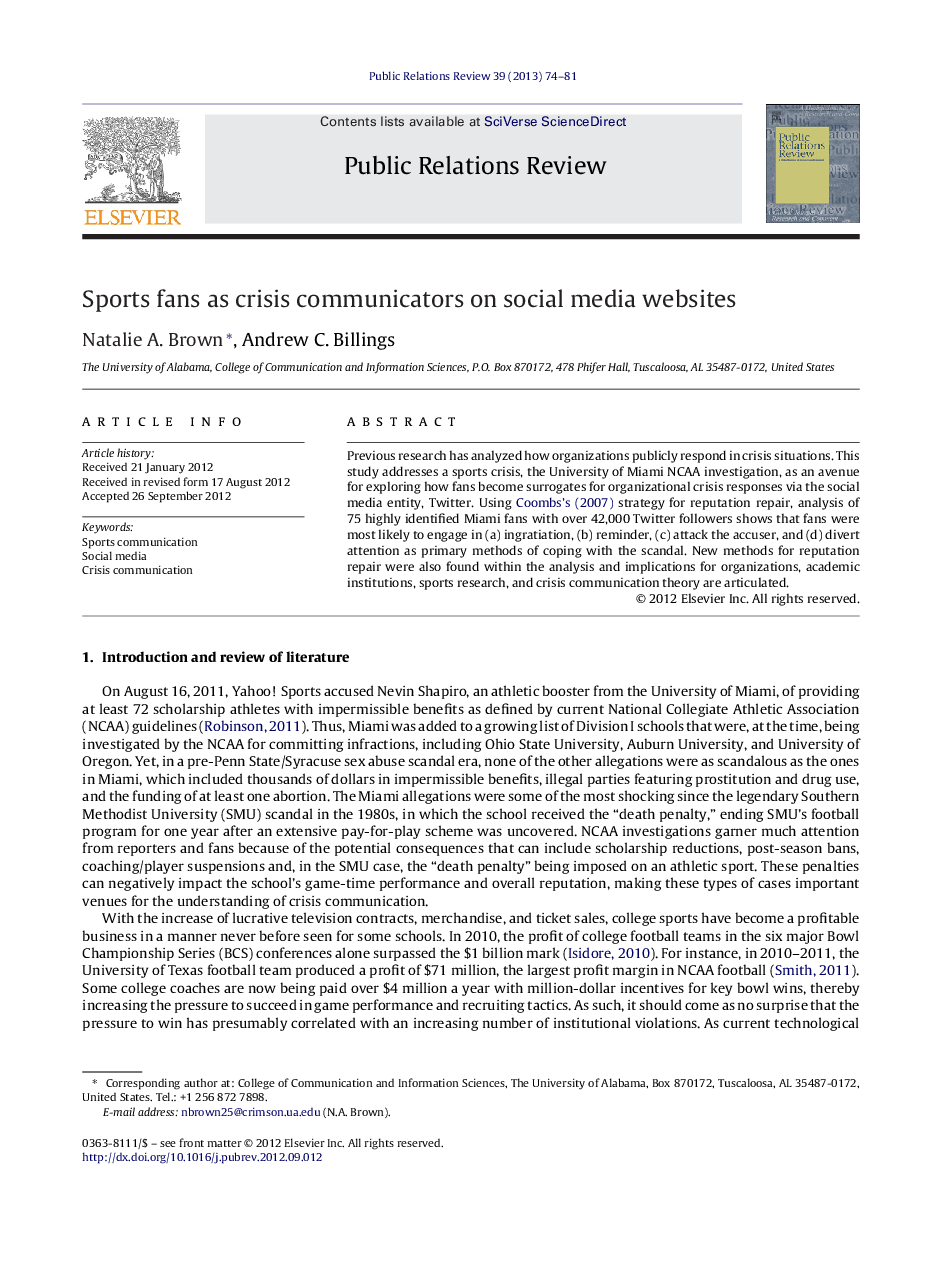| Article ID | Journal | Published Year | Pages | File Type |
|---|---|---|---|---|
| 139580 | Public Relations Review | 2013 | 8 Pages |
Previous research has analyzed how organizations publicly respond in crisis situations. This study addresses a sports crisis, the University of Miami NCAA investigation, as an avenue for exploring how fans become surrogates for organizational crisis responses via the social media entity, Twitter. Using Coombs's (2007) strategy for reputation repair, analysis of 75 highly identified Miami fans with over 42,000 Twitter followers shows that fans were most likely to engage in (a) ingratiation, (b) reminder, (c) attack the accuser, and (d) divert attention as primary methods of coping with the scandal. New methods for reputation repair were also found within the analysis and implications for organizations, academic institutions, sports research, and crisis communication theory are articulated.
► This study applied Coombs's (2007) strategies for reputation repair to analyze 75 highly identified Miami fans with over 42,000 Twitter followers. ► Fans were most likely to engage in ingratiation, reminder, attack the accuser, and divert attention strategies to cope with the scandal. ► This study found that fans utilize traditional crisis communication techniques in their social media posts, which should be considered by crisis communication managers.
